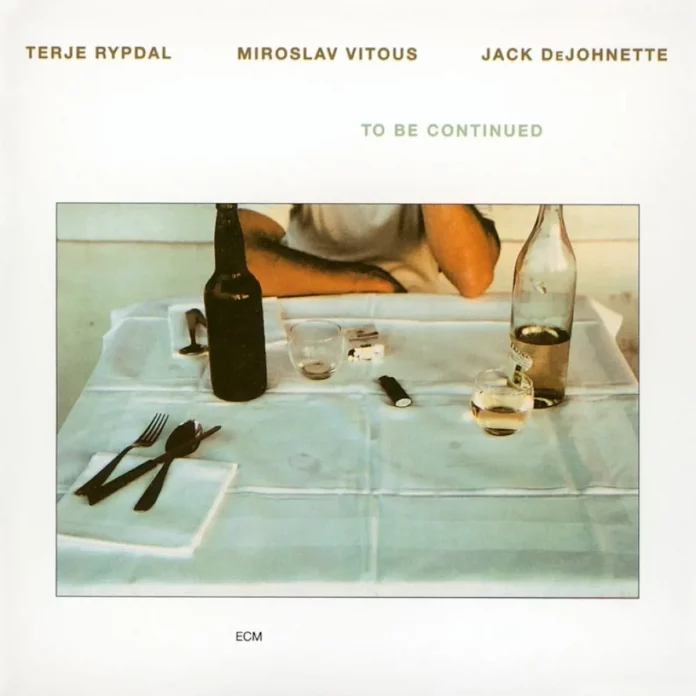Though more introspective, Rydpal’s music has much in common with sixties/seventies psychedelic rock, with emphasis laid on dreamy metaphysical textures. The lugubrious harmonies of Maya epitomise the style, summoning visions of icy Nordic wastes. Mountain In The Clouds, with its strong, cleanly articulated swing bass line has Rydpal apparently bowing the guitar to produce cellolike effects, and does not stray far from the rock mysticism arena. Morning Lake pursues the same ideal, offering little variation on the earlier tracks.
Side two’s title track is a departure, beginning with a rock steady beat from the ever subtle and precise DeJohnette, which is joined by a funky electric bass figure, overlaid with sustained ethereal chords from Rydpal. Compared directly with his black American counterparts, Vitous produces a weak and amateurish copy of a funk bass line, but perhaps some element of parody was intended. The boisterous rock guitar workout that follows is in contrast to Rydpal’s less decisive work elsewhere on the album, though on this showing he is no threat to the supremacy of Hendrix or McLaughlin.
The rest of side two is devoted to more typically mysterious floating textures, and concludes with DeJohnette’s monastic vocalising on Uncomposed Appendix.
While one has to applaud Rydpal’s efforts to create a personal style, the intent alone is not enough. This recording functions well as easy listening or incidental music, but offers little excitement or intrinsic substance. Rydpal seems to be offering a concept, an idea of musical form, without doing a lot of communicating.
Discography
Maya; Mountain In The Clouds; Morning Lake (22.03) – To Be Continued; This Morning; Topplue, Votter & Skjerf; Uncomposed Appendix (19.36)
Terje Rydpal (elg/f); Miroslav Vitous (elb/b/p); Jack DeJohnette (d/v). Oslo. January 1981.
(ECM 1192)
















